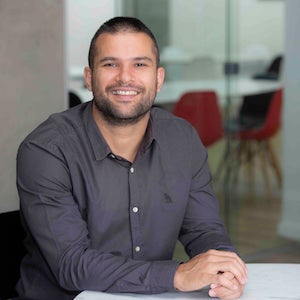Just as with software development, research under Horizon Europe promotes the adoption of sharing research outputs as early and widely as possible to citizen science, developing new indicators for evaluation research, and rewarding researchers.
 Cara DeliaJust as with software development, research under Horizon Europe promotes the adoption of sharing research outputs as early and widely as possible to citizen science, developing new indicators for evaluation research, and rewarding researchers.
Cara DeliaJust as with software development, research under Horizon Europe promotes the adoption of sharing research outputs as early and widely as possible to citizen science, developing new indicators for evaluation research, and rewarding researchers.
Horizon Europe emphasizes open science and open source technology. The program evolved from Horizon 2020, which provided financial support for research projects that promoted industrial competitiveness, advanced scientific excellence, or solved social challenges through the process of "open science."
Open science is an approach to the scientific process based on open cooperative work, tools, and diffusing knowledge found in the Horizon Europe Regulation and Model Grant Agreement. This open science approach aligns with open source principles that provide a structure for such cooperation.
 Leslie Hawthorn
Leslie HawthornThe open source principles are:
- Transparency
- Collaboration
- Release early, release often
- Inclusion
- Community orientation
In creating open source software, one of the basic foundational principles of open source software development is an "upstream first" philosophy. The opposite direction is "downstream," and upstream and downstream make up the ecosystem for a given software package or distribution. Upstreams are important because that's where the source contribution comes from.
Each upstream is unique, but generally, the upstream is where decisions are made and where the community for a project collaborates for the project's objectives. Work done upstream can flow out to many other open source projects. The upstream is also a place where developers can report bugs and security vulnerabilities. If a bug or security flaw is fixed upstream, then every downstream project or product based on the upstream can benefit from that work.
 Jose Castillo Lema
Jose Castillo LemaIt is important to contribute to the work side-by-side with the rest of the community from which you benefit. By working upstream first, there is the opportunity to vet ideas with the larger community and work together to build new features, releases, content, etc. It's far better if all the contributors work together rather than contributors from different companies, universities, or affiliations working on features behind closed doors and then trying to integrate them later. Open source contributions can outlive the research project duration making a more durable impact.
As an example of such contributions, in the ORBIT FP7 EU project, a feature was developed by Red Hat (lower layers, such as Linux Kernel and QEMU) and Umea University (upper layers, such as LibVirt and OpenStack) and contributed to their related upstream communities. This enabled "post-copy live migration of VMs" in OpenStack. Even though that was done several years ago, that feature is still available (and independently maintained) in any OpenStack distribution today (as well as plain LibVirt and QEMU).
Just as with software development, research under Horizon Europe promotes the adoption of sharing research outputs as early and widely as possible to citizen science, developing new indicators for evaluation research, and rewarding researchers. With open source upstream communities, the research contributed can extend beyond the research project timeline by feeding into the upstream life cycle. This allows future consumption by companies, universities, governments, etc., to evolve and further secure the research's project contribution.
This article originally appeared on The Impact of Upstreaming Research Contributions and is republished by Opensource.com with permission.
About the Authors
Cara Delia is Principal Community Architect at Red Hat. She advocates open source principles and practices by contributing to external open source communities focused on Financial Services and Climate Sustainability…[More]
Leslie Hawthorn has spent her career creating and cultivating open source communities. She has driven open source strategy in Fortune 10 companies, pre-IPO startups, and Foundation Boards including senior roles at Red Hat, Google, the Open Source Initiative, and Elastic. She currently leads the industry verticals community strategy team within Red Hat’s Open Source Program Office…[More]
Jose Castillo Lema has been designing and implementing IaaS/PaaS solutions, namelly OpenStack and Kubernetes/OpenShift, for the last 8 years, and teaching postgraduate courses for the last 7 years…[More]
This article was published in Opensource.com. It is republished by Open Health News under the terms of the Creative Commons Attribution-ShareAlike 4.0 International License (CC BY-SA 4.0). The original copy of the article can be found here.